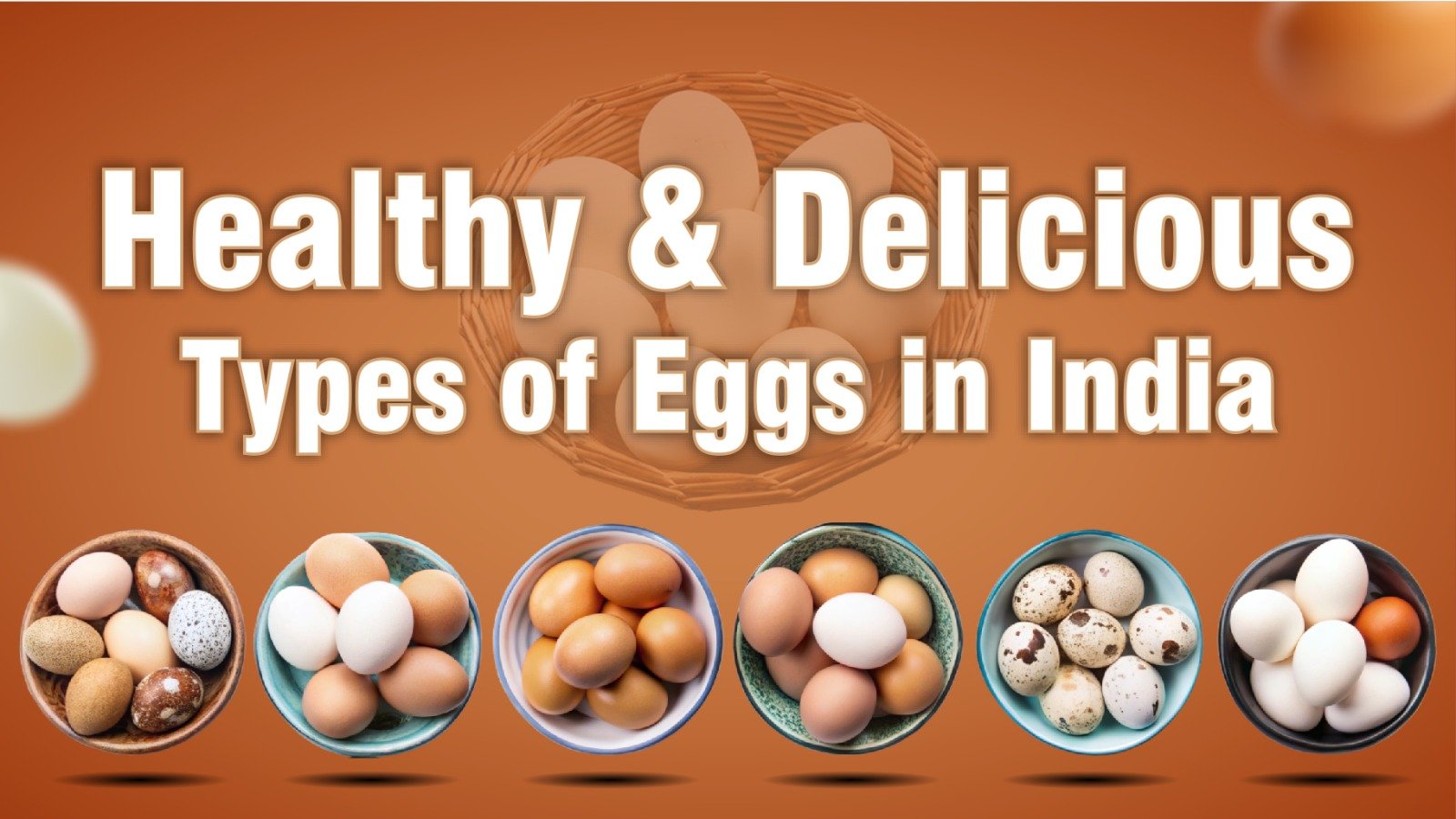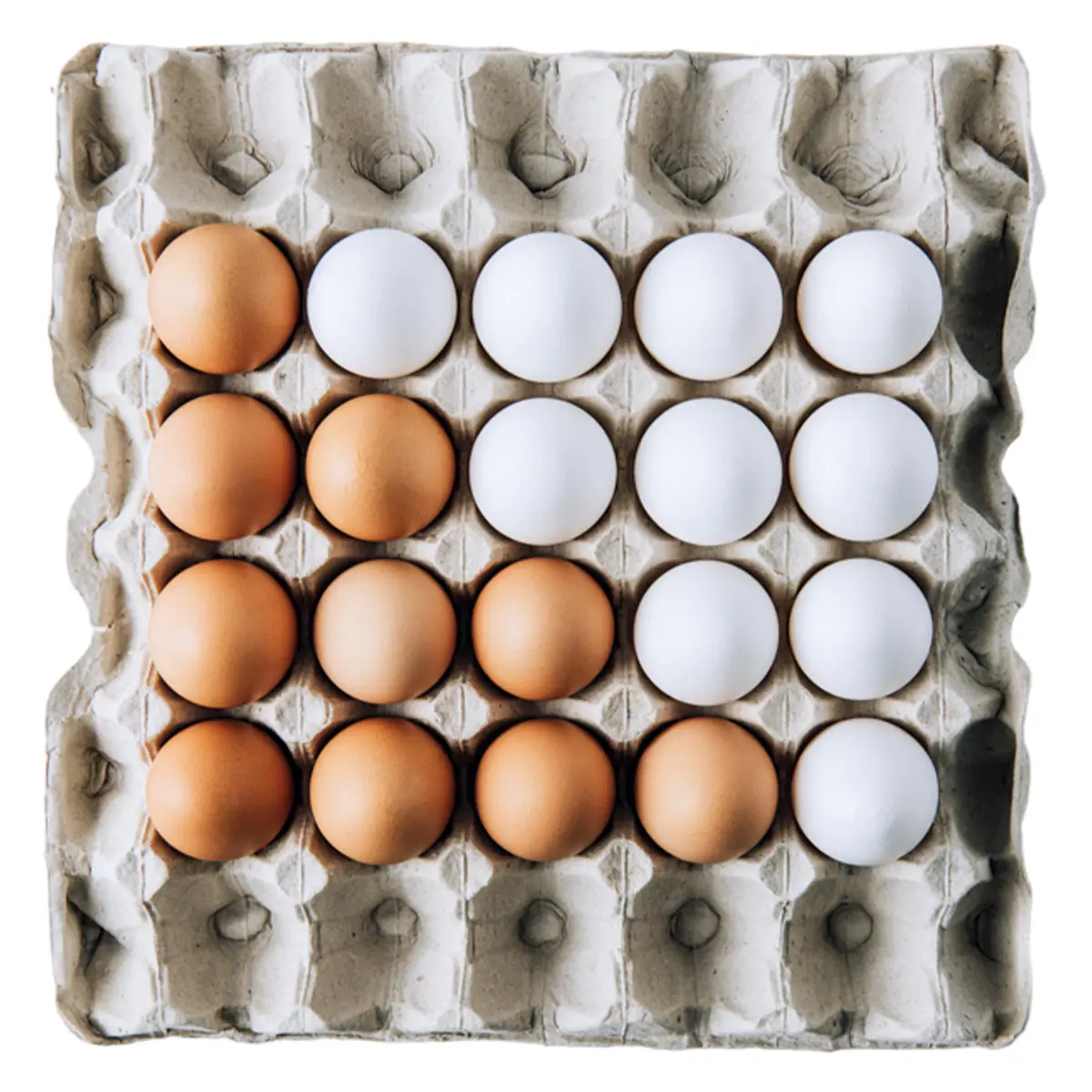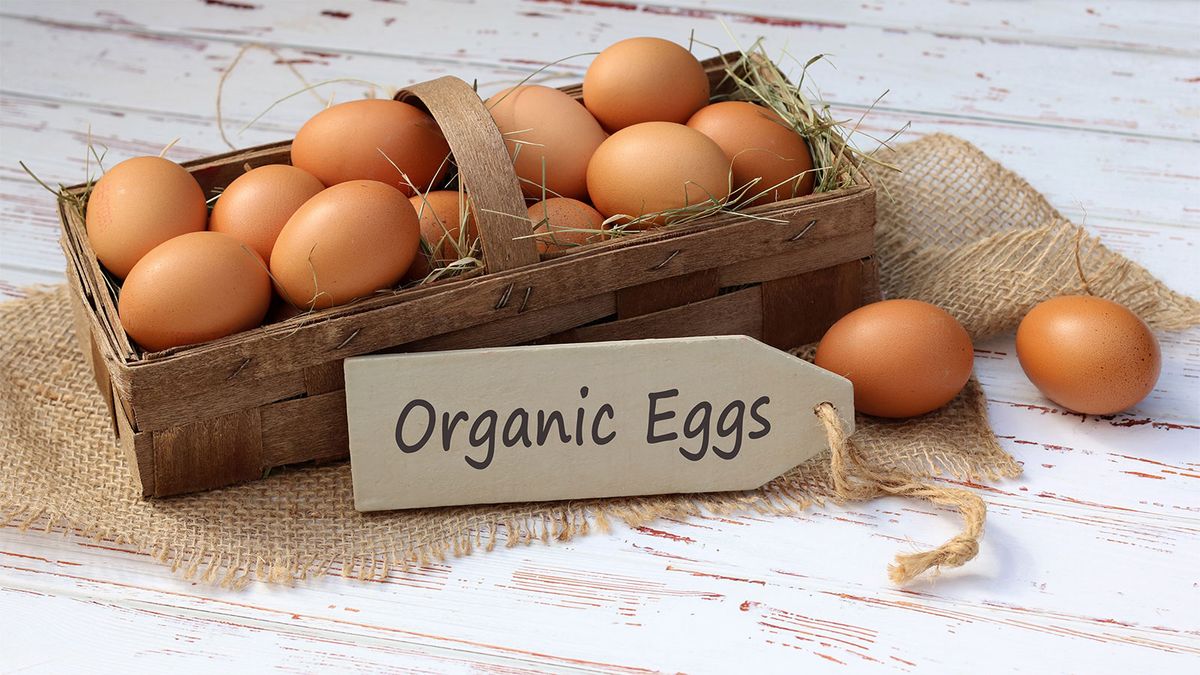
6 Popular Edible Types of Eggs | Price of Eggs in India
Healthy & Delicious Types of eggs in India | Eggs are a universal favorite, prized for their versatility, nutrition, and taste. While most of us think of chicken eggs when we hear “eggs,” there’s a wide of varieties out there—both in how they’re raised and the species they come from.
In India, eggs are a culinary cornerstone, and options like standard white and brown, organic, free-range, pasture-raised, and omega-3 enriched eggs dominate the market.
But beyond chickens, other edible types of eggs bring unique flavors and nutrients to the table.
Let’s explore the popular types of eggs based on production and the different kinds of eggs people eat!
-
Standard White and Brown Eggs

These are the everyday eggs you’ll find across India. White eggs come from hens with white feathers (like White Leghorns), while brown eggs are laid by hens with brown feathers (like Rhode Island Reds). Shell color aside, they’re nutritionally identical.
- Why they’re popular: Affordable, accessible, and perfect for any dish.
- Nutrition: High in protein, vitamin B12, and selenium.
- Best for: Daily meals like omelettes, curries, or boiled snacks.
List of eggs price on Blinkit:
- Licious Farm Fresh Classic White Eggs: ₹79
- Table White Eggs: ₹77
- Table White Eggs (6 pieces): ₹47
Price of Eggs on BigBasket:
- Egg Master White Eggs, 6 pcs Carton: ₹70
- 9Essential Natura Organic White Eggs, 6 pcs: ₹112
- Pure eggs Eggs – Country (Desi), 6 pcs: ₹90
-
Organic Eggs

Organic eggs come from hens raised without antibiotics, hormones, or synthetic pesticides. Their feed is organic and GMO-free, appealing to those seeking pure, natural food.
- Why they’re popular: Perceived as higher quality and more nutritious.
- Nutrition: Protein-packed, with potential boosts in omega-3s from better feed.
- Best for: Health-conscious eaters and organic enthusiasts.
Sam’s Fresh Organic Eggs – Easy to Digest, 12 pcs
Price: ₹200
-
Free-Range Eggs
Laid by hens that roam outdoors rather than staying caged, free-range eggs reflect a more natural lifestyle for the birds.
- Why they’re popular: Ethical farming and a slightly richer taste win over many in India.
- Nutrition: May have more vitamins A and E due to the hens’ diverse diet.
- Best for: Sustainable food lovers.
-
Pasture-Raised Eggs

Pasture-raised hens enjoy wide-open spaces, foraging on grass, insects, and seeds. The result? Eggs with standout flavour and nutrition.
- Why they’re popular: Superior taste and health benefits make them a premium choice.
- Nutrition: Higher in omega-3s, vitamin D, and antioxidants.
- Best for: Gourmet dishes and nutrient-focused diets.
- Price: MRP: 150
-
Omega-3 Enriched Eggs
These eggs come from hens fed omega-3-rich diets (think flaxseeds or fish oil), boosting the eggs’ healthy fat content.
- Why they’re popular: A convenient way to get heart- and brain-boosting omega-3s.
- Nutrition: Enhanced omega-3 levels alongside standard egg nutrients.
- Best for: Functional food seekers.
-
Desi (Country) Eggs in India
Desi eggs, from native Indian hen breeds, are smaller but packed with flavor. Raised in rural backyards, these hens often roam freely.
- Why they’re popular: Nostalgic taste and cultural roots make them special.
- Nutrition: Comparable to free-range eggs, influenced by natural foraging.
- Best for: Traditional recipes like egg bhurji or anda curry.
Types of Eggs That Are Eaten
While chicken eggs reign supreme, other edible types of eggs from different species are enjoyed worldwide and even in parts of India. Here’s a look at some popular ones:
- Duck Eggs
Duck eggs are larger than chicken eggs, with a thicker shell and a richer, creamier yolk. They’re common in coastal and rural India, especially in dishes like curries or pickles.
- Taste & Texture: Bold flavor and higher fat content.
- Nutrition: More protein, fat, and cholesterol than chicken eggs, plus extra vitamins like B12.
- Best for: Baking (they add fluffiness) or savory dishes.
- Quail Eggs
Tiny and speckled, quail eggs are a delicacy in India, often boiled, fried, or used as garnishes in upscale restaurants.
- Taste & Texture: Mild yet slightly gamey, with a delicate yolk.
- Nutrition: High in protein and iron, though you’ll need a few to match a chicken egg’s volume.
- Best for: Appetizers, salads, or health snacks.
- Goose Eggs
Less common in India but available in some regions, goose eggs are large, with a robust flavor and a tougher shell.
- Taste & Texture: Stronger taste and denser yolk than chicken eggs.
- Nutrition: Packed with protein, fats, and vitamins, though higher in cholesterol.
- Best for: Specialty cooking or omelettes for a crowd (one egg equals about three chicken eggs!).
- Turkey Eggs
Rarely eaten in India due to limited turkey farming, turkey eggs are similar to chicken eggs but slightly larger and speckled.
- Taste & Texture: Mild and comparable to chicken eggs.
- Nutrition: Similar protein and nutrient profile, just in a bigger package.
- Best for: Experimenting in the kitchen if you can find them.
- Emu Eggs
From the large flightless emu bird, these dark green eggs are a rarity in India, mostly found in specialty markets or farms.
- Taste & Texture: Rich and intense, with a massive yolk.
- Nutrition: High in protein, fats, and micronutrients—one egg can feed a family!
- Best for: Adventurous eaters or unique culinary creations.
Which Type of Egg Should You Choose?
Your choice depends on your needs:
- Budget: Standard white/brown or desi eggs.
- Health: Organic, pasture-raised, omega-3 enriched, or quail eggs.
- Ethics: Free-range or pasture-raised.
- Flavour Adventure: Duck, goose, or emu eggs.
Types of Eggs—whether from chickens or other birds—are a nutritional goldmine, offering protein, healthy fats, and endless cooking possibilities. In India, where a particular recipe from types of eggs star in everything from street-side and bhaji to home-cooked biryanis, exploring these varieties can transform your meals.
Eggs are more than just a breakfast staple; they’re a window into farming practices, species diversity, and culinary creativity. Whether you stick to the classic chicken egg or venture into quail or duck territory, you’re enjoying one of nature’s most wholesome foods. So, next time you’re at the market, consider the popular types of eggs available in India—and maybe try something new! Enroll in a culinary courses and understand the plenty of recipes that can made from types of eggs.
Which egg is best in India?
There is no significant difference between nutrients. The difference in colour of the eggs is due to the breed of hen laying the egg. Amidst the variety of options, pasture-raised eggs stand out and are the best to buy. However, it’s better to check for third-party authorisations before buying eggs.
How many types of eggs are there in India?
It is again of two types – brown and white. Both have roughly the same nutrient values. Rich in proteins, calcium, and zinc they are mild in taste. Quite similar to white chicken eggs, Quail eggs have brownish dots on them and are comparatively small as compared to standard chicken eggs.
Which egg is good for health?
For optimal health, pasture-raised or organic eggs are generally considered nutritionally superior to conventionally produced eggs, offering potentially higher levels of lutein and omega-3 fatty acids.





